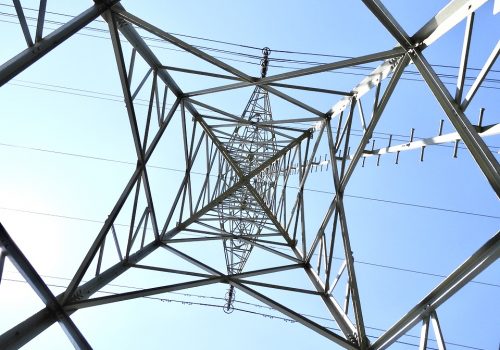As the global community continues to grapple with the coronavirus (COVID-19), the Atlantic Council is open for business. Our business, meetings, and events, however, are occurring virtually. For more information, please read an update from our President and CEO.
It is certain that the COVID-19 pandemic will have an enormous impact on economic growth, energy markets, and geopolitics. In the United States, energy use has reached a sixteen-year low, as most business and industry has been halted due to social distancing measures, and the US Energy Information Administration expects US power consumption to decline by 3 percent in 2020. The Hon. Neil Chatterjee, chairman of the Federal Energy Regulatory Commission (FERC), will discuss how the US power sector is adjusting to a world where electricity consumption patterns are rapidly changing and where domestic energy markets are facing increased uncertainty as the nation adjusts to a prolonged period of COVID-19 shutdown.
Event recap
On April 28, 2020, the Atlantic Council Global Energy Center hosted The Hon. Neil Chatterjee, chairman of the Federal Energy Regulatory Commission (FERC) for a virtual fireside chat on the future of the US energy system in the wake of the COVID-19 pandemic. Moderated by Mr. David Goldwyn, chair of the Atlantic Council Energy Advisory Group, this discussion revolved around how the US power sector is adjusting to a new energy environment, one characterized by rapidly evolving electricity consumption and growing domestic market uncertainty. Before the pandemic, priority issues concerned infrastructure maintenance amid growing energy production and renewable energy integration, but since the spread of COVID-19, the spotlight has shifted to grid functionality; the state of various US utilities; and FERC’s response to current and future energy infrastructure and market developments.
To begin, Chairman Chatterjee relayed how the Commission has adapted to these unprecedented circumstances, underlining FERC efforts to maintain normal operations and adhere to originally set timelines and schedules. While the FERC has witnessed an increase in residential power demand as result of stay-at-home orders, the chairman explained that energy customers would not be penalized if they were unable to pay utilities immediately. He identified several challenges the FERC and the nation will face when the energy sector and market ultimately recover from the impacts of COVID-19 and speculated on next steps as the economy reopens and the disease subsides. Given the recent demand shift from industrial to residential power amid the pandemic, energy consumer voices will become increasingly relevant to FERC decision-making. Chairman Chatterjee affirmed the Commission’s appreciation for consumer engagement and discussed the importance of striking a delicate balance between protecting consumers’ economic interests and ensuring companies can invest in critical infrastructure.
Mr. Goldwyn and Chairman Chatterjee also discussed the future of the energy grid in the aftermath of COVID-19, touching on both energy diversification and climate resilience. Chairman Chatterjee highlighted several changes the grid has already faced: growing natural gas use in the power sector, increased renewable energy deployment, and falling energy costs. He also noted the impact of market shifts, underscoring the importance of competition in driving innovation and technology’s pivotal role in supporting and further expanding grid flexibility. The conversation concluded with a brief discussion on climate action, the business case for competitive renewables vis-à-vis conventional hydrocarbons, and power sector decarbonization.
Featuring
The Hon. Neil Chatterjee
Chairman
Federal Energy Regulatory Commission
Moderated by
David Goldwyn
Chair, Energy Advisory Group
Atlantic Council
Learn more about the Global Energy Center

The Global Energy Center develops and promotes pragmatic and nonpartisan policy solutions designed to advance global energy security, enhance economic opportunity, and accelerate pathways to net-zero emissions.

